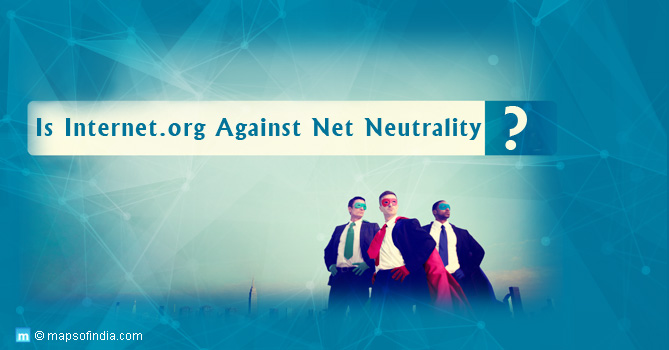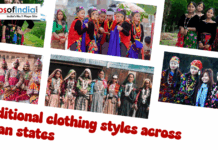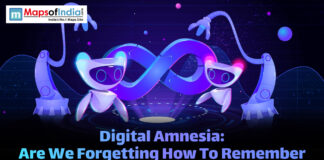The Department of Telecommunications (under the Ministry of Communications and Information Technology), dealing with the raging issue of Net Neutrality in India, has reportedly opposed Facebook’s venture Internet.org for encouraging bias with regard to internet access in the country. In India, Internet.org allows access to certain websites and web services without a mobile user incurring any data costs, thereby encouraging their use. The DoT panel, however, seems to favour plans similar to Internet.org such as Airtel Zero, provided prior clearance is received from the TRAI (Telecom Regulatory Authority of India).
What is Internet.org?
In August 2013, Facebook’s Founder and CEO, Mark Zuckerberg launched Internet.org – a venture that brings together the social networking website, Facebook, and six other technology majors – Ericsson, MediaTek, Nokia, Opera Software, Samsung and Qualcomm. The partnership endeavours to bring Internet access at very low cost or, in some cases, at no cost at all to select websites and web-based services. The partnership aims mainly at bringing Internet access to those developing countries that do not have free or steady access to the World Wide Web. The largest number of people unconnected to the Internet are from countries in Africa, Asia, and Latin America and this is the focus of Internet.org.
In 2014, Internet.org came out with its first mobile application, which can be freely downloaded. It allows users (in select developing countries) to access a number of web services for free. The application includes a bunch of essential services that are usually required and accessed by Internet users across the world. It also gives a local touch by adding local services such as job searches, health, weather and news information. The Internet.org application provides access to AccuWeather, BBC News, Facebook, Facebook Messenger, Google, Wikipedia, and UNICEF. The local elements differ as per the country where it is used.
The app was first launched in three African countries – Zambia, Tanzania and Ghana. It was then introduced in the South American country of Colombia. By early 2015, Internet.org had a tie-up with Reliance Communications (founded by Anil Ambani) in India and launched the mobile app in the country on 10 February 2015. While initially a number of startups and tech majors were enthusiastic about joining Internet.org, by April 2015, the venture faced major criticism. A number of web services withdrew from the application as it was deemed to be antagonistic to net neutrality.
What is Net Neutrality?
Net neutrality is the principle that all Internet users be free to choose the websites and web services that they access. This freedom should not be hampered by Internet Service Providers (ISPs), nor should access be restricted by the ISPs in any way.
Is Internet.org Against Net Neutrality?
One of the main criticisms levied against Internet.org is that it is inimical to net neutrality. Allowing free access to certain websites and services also means discouraging users from accessing other competitive services. Internet.org, however, does not work on a payment mode similar to the one that ISPs follow. The ISPs charge websites a fee while freeing users of their data charges, thus prejudicing the users towards use of certain websites. Internet.org, on the other hand, claims that it is pro-internet access. The main aim of this non-profit partnership is to get more and more people on board the Internet bandwagon. Facebook, however, has been growing more and more commercial with most enterprises and businesses listing to make their presence felt. Critics claim that the conflict of interests, therefore, becomes undeniable. Facebook and Internet.org are prejudiced against business not advertising on or who do not have a presence on the site, say critics.
Net Neutrality in India
In India, the Net Neutrality debate started to build steam after the country’s major telecom operator, Airtel, decided to launch Airtel Zero – a free access platform allowing users to access certain websites for no cost at all. Instead of the users, the websites were charged a fee for joining Airtel Zero. Net neutrality suddenly became the buzzword in the country and a large campaign was mounted. A large number of people responded to the “Save the Internet” call and TRAI received about a million e-mails in support of Net Neutrality. It is at this time that most Indian services and companies decided to distance themselves from Internet.org as well.
DoT’s Stance
India has over 300 million users who access the Internet and over 60 per cent of these users access the World Wide Web through their mobile phones. The need for a comprehensive policy with regard to the ISPs and Internet access was felt after the Net neutrality campaign erupted in April 2015. Indian telecom Minister, Ravi Shankar Prasad, then asked the DoT to constitute a panel on net neutrality.
The panel’s recommendations have been submitted to the ministry.
According to news reports, the panel has opposed the use of Internet.org. An official associated with the DoT reportedly said, “The panel observed that until April 2015, Internet.org users could have free access for only a few websites and Facebook’s was seen as gatekeeper in determining what websites were in that list. This was seen as violating net neutrality. In early May 2015, due to severe criticism, Facebook opened it to websites that meet certain criteria”.
The panel, however, seems to have supported zero rating ventures such as Airtel Zero since it is merely a commercial venture and open to anyone who makes a payment. Such a support, however, comes with a rider that operators and ISPs will require permission from telecom regulator TRAI prior to launch of such a plan. Also, the plan may be withdrawn at any time if it is found violating the principles of net neutrality.
The Path Ahead
The DoT panel’s opposition to Internet.org and support for Airtel Zero and such services is highly debatable. While we wait for official news about the panel’s recommendations and the ministry’s actions, one thing seems to be clear: India is in need of a comprehensive set of guidelines defining net neutrality. Commercial ventures and internet service providers will need clear regulations. The Internet is an extremely dynamic place and clear market leaders are always on the look out to prejudice the users against newer entrants. To make India’s market fair and evolving with all the advantages of competition, the DoT and TRAI need to collaborate and draft net neutrality guidelines. Crowdsourcing of ideas to build up this manual will be best suited to a country like India.
Read More:
All You Need to Know About Net Neutrality
Are we too dependent on computers, technology and Internet ?
Internet Of Things – New Devices for Remote and Sensory Applications
Telecom Tech Can Make One India
India Ranks Third in Cyberbullying: What Needs to Be Done
E-commerce – Indians set to spend more






